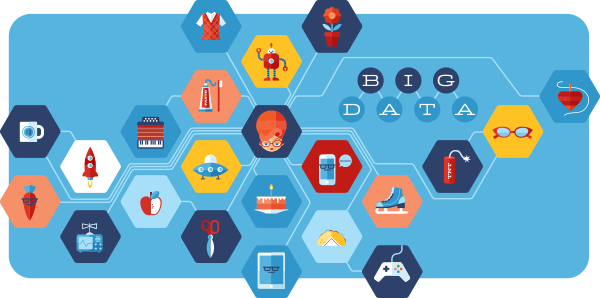Big data, big insight, and potential big trouble
china.org.cn / chinagate.cn by Eugene Clark, August 1, 2014 Adjust font size:
|
Big data holds great promise of providing insights and enhancing the efficiency of our life. |
Big data is becoming a big issue and has been in the news lately. Big data refers to technology's ability to gather, collect and analyze huge volumes of data. Sophisticated algorithms have the potential to probe more deeply into human behavior than ever before, and big data has enabled deep insights that have been used by businesses, regulators, marketers, human resources and managers. Businesses and government in China and all major countries are increasingly collecting and using big data to achieve new insights and gain new efficiencies.
The negative impact of this is people are beginning to realize that big data can also be misused by invading privacy. A case in point is the outcry over Facebook's experiment with big data in using it to manipulate the news feeds of a randomly selected 689,000 users for a psychological study. The experiment involved Facebook changing the number of positive or negative posts people saw for one week in January 2012 to investigate if mood is contagious on social media. The problem for Facebook was that many users did not like being treated as lab rats for an experiment. Facebook pointed to its "users' agreement," but many have challenged whether this agreement provided genuine and informed consent for such experimentation. Others have contrasted Facebook's approach with the strict rules that govern university research, especially when humans are involved.
The challenge for regulators and the private sector users of big data is to achieve an appropriate balance between use of analytics for analysis and concerns about privacy and other potential abuses of this new and powerful digital tool. Ultimately, it comes down to having in place a framework that engenders trust, something which is vital for success in both e-commerce and e-government. Private sector organizations are also updating their codes of practice to take big data into account.
Leading the way in achieving this balance is the Australian government, which was recently ranked second in the 2014 UN E-government Survey. Australia has released for comment a code of ethics governing big data use.



